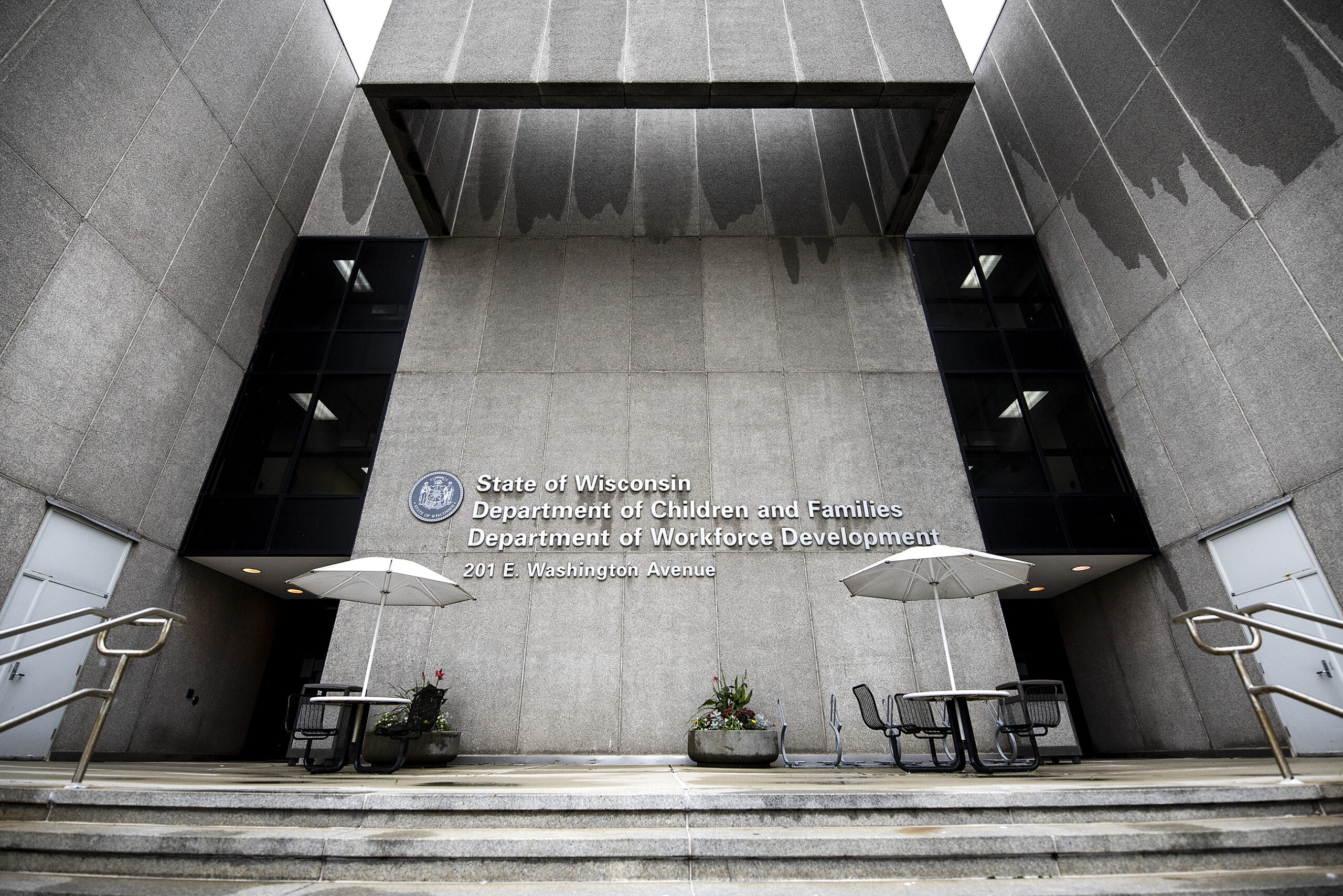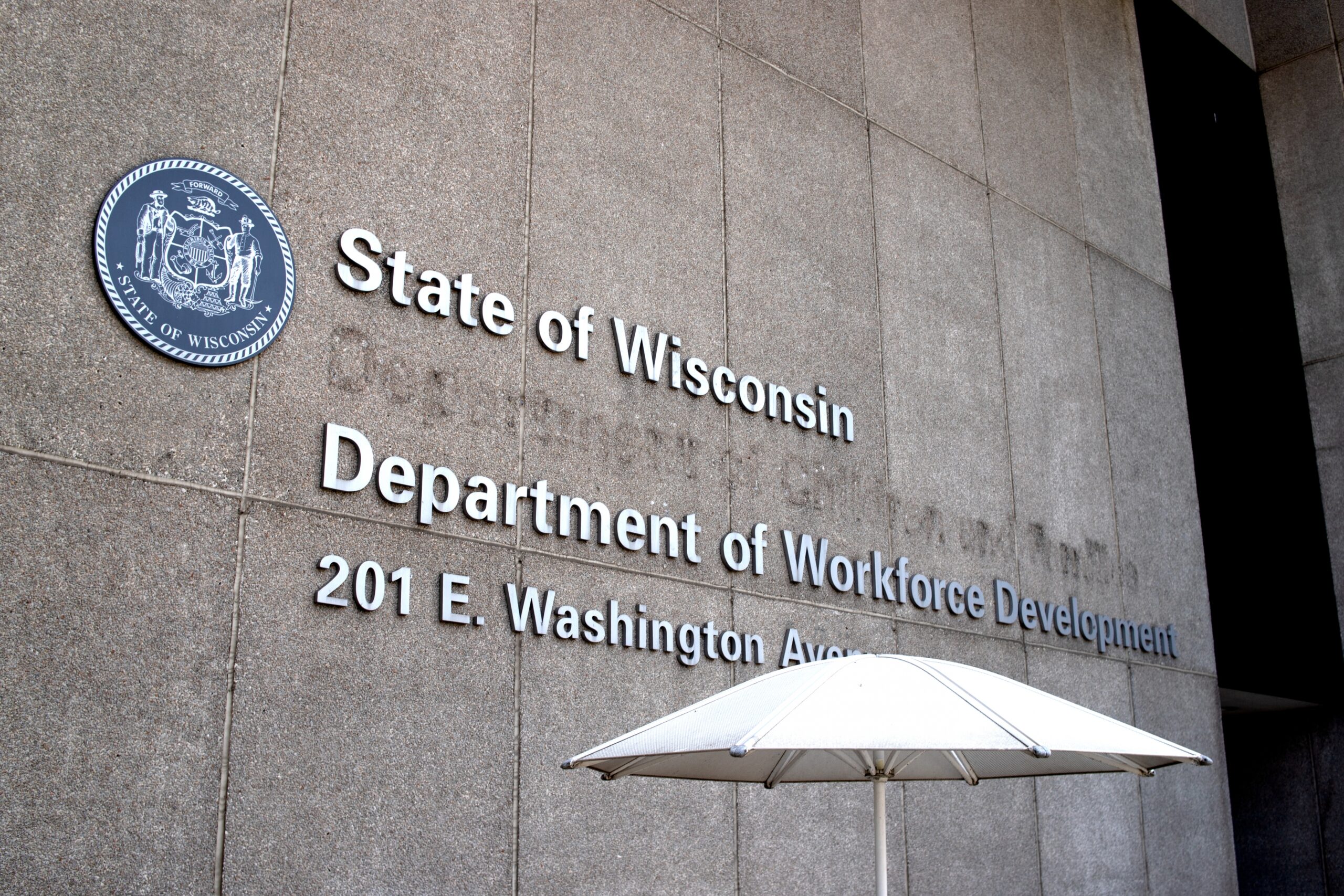The state Department of Workforce Development announced Wednesday it had “taken the first step” toward waiving Wisconsin’s one-week waiting period for unemployment benefits. But it remains unclear whether the department has the authority to take that step on its own.
GOP state lawmakers recently asked the Legislature’s nonpartisan attorneys to weigh in on the question. In a Tuesday memo addressed to state Senate Majority Leader Devin LeMahieu, R-Oostburg, the Legislative Council wrote “very briefly, the answer is no.”
DWD is attempting to waive the waiting period through an emergency rule, the same process the department used earlier this month to waive work search requirements for thousands of jobless Wisconsinites.
News with a little more humanity
WPR’s “Wisconsin Today” newsletter keeps you connected to the state you love without feeling overwhelmed. No paywall. No agenda. No corporate filter.
According to the nonpartisan Legislative Reference Bureau, DWD has authority under state law to specifically waive work search requirements under certain circumstances. But, according to the reference bureau, no such authority is granted to the department to wave the state’s one-week waiting period.
GOP Lawmakers Push Back
In a legislative hearing within hours of DWD’s announcement Wednesday, state Sen. Howard Marklein, co-chair of the Legislature’s Joint Finance Committee, pressed DWD head Amy Pechacek on the issue.
“So you thought you’d give it a shot even though it violated state statute?” Marklein, R-Spring Green, said.
“(DWD’s) attorneys felt that it was a valid, you know, emergency rule because it wasn’t a permanent move to … override statute,” Pechacek responded. “That it was simply in the spirit of the ongoing pandemic, so we were advised by our counsel that it was a valid interpretation.”
Beaver Dam Republican Rep. Mark Born, Assembly co-chair of the committee, then asked if Pechacek was saying that “as long as a rule that violates statute is temporary, it’s allowed?”
Pechacek said no, arguing the department has the power to proceed with the rule because it enables the department to distribute benefits more efficiently, and would allow Wisconsin to regain access to the $1.3 million in federal funding the state has lost every week the waiver is not in effect.
The waiting period was reinstated after an initial waiver expired Feb. 6. One day earlier, Gov. Tony Evers vetoed a series of proposals from GOP state lawmakers that included a proposal to continue the waiver. Legislation curbing the governor’s power was also included in the proposals.
Competing Efforts To Waive Waiting Period
DWD has already gained initial approval from Evers on the plan, and is in the midst of a 10-day waiting period before the department can proceed with drafting the rule.
Over that 10-day period, the Legislature could call for a hearing on the plan, which would further delay implementation of the rule.
Once the rule is drafted, Evers must give final approval. Following that, the rule would take effect after it’s published in the Wisconsin State Journal.
DWD estimates the soonest the waiver could be back in place is March 5.
Separately, the state Senate approved a plan Thursday that would continue to waive the state’s waiting period through March 13, a little less than a month from now. Lawmakers in the state Assembly are set to take up the measure Tuesday.
Ultimately, the futures of both competing efforts to waive the waiting period remain uncertain.
Lawmakers could act to prevent DWD from proceeding with its emergency rule. Alternatively, Evers could veto GOP-backed legislation that extends the waiver through mid-March.
DWD spokesperson Amy Barrilleaux said in an email Thursday that, despite the waiver’s passage in the state Senate, the department has not withdrawn plans for the emergency rule.
In a statement to WPR on Friday, a spokesperson for Republican Sen. Steve Nass, co-chair of the Joint Committee for Review of Administrative Rules, said if Senate legislation extending the waiver fails to become law, Nass is “prepared to utilize the full powers of (the committee) to suspend a DWD emergency rule authorizing a waiver on their own authority.”
“An agency can’t on its own authority waive a statutory requirement, unless granted such power specifically by law,” the spokesperson said.
Wisconsin Public Radio, © Copyright 2025, Board of Regents of the University of Wisconsin System and Wisconsin Educational Communications Board.







